Physical Address
304 North Cardinal St.
Dorchester Center, MA 02124

We All Adore A Happy Wishes

We All Adore A Happy Wishes
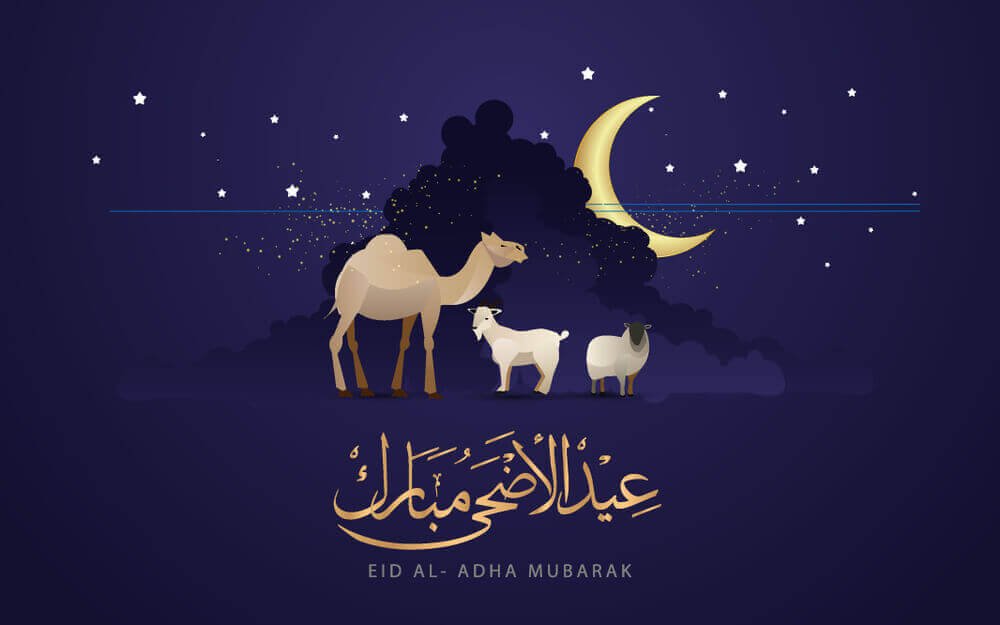

Eid ul Adha, also known as the Festival of Sacrifice, is one of the most significant religious celebrations for Muslims around the world. The festival recalls the Prophet Ibrahim’s (Abraham’s) willingness to sacrifice his son Ismail (Ishmael) as a sign of devotion to God and signals the conclusion of Hajj, the yearly trip to the holy city of Mecca. This year, Eid ul Adha 2023 will be celebrated on August 10th, and Muslims all over the world are eagerly awaiting the occasionOn the tenth day of Dhu al-Hijjah, the Islamic calendar’s twelfth and last month, Eid ul Adha is observed. The festival is an opportunity for Muslims to express their gratitude to Allah for his blessings and to strengthen their faith by offering sacrifices and performing other religious rituals. It is also a time to remember the story of Prophet Ibrahim, who was willing to sacrifice his son Ismail as a test of his faith and obedience.The story of Prophet Ibrahim is an essential part of the Islamic faith, and the sacrifice he was willing to make is a symbol of selflessness and devotion. Muslims are encouraged to follow this example by offering sacrifices of their own, with the meat being distributed among family, friends, and those in need. This act of generosity and kindness is an essential part of the festival and reflects the core values of Islam.
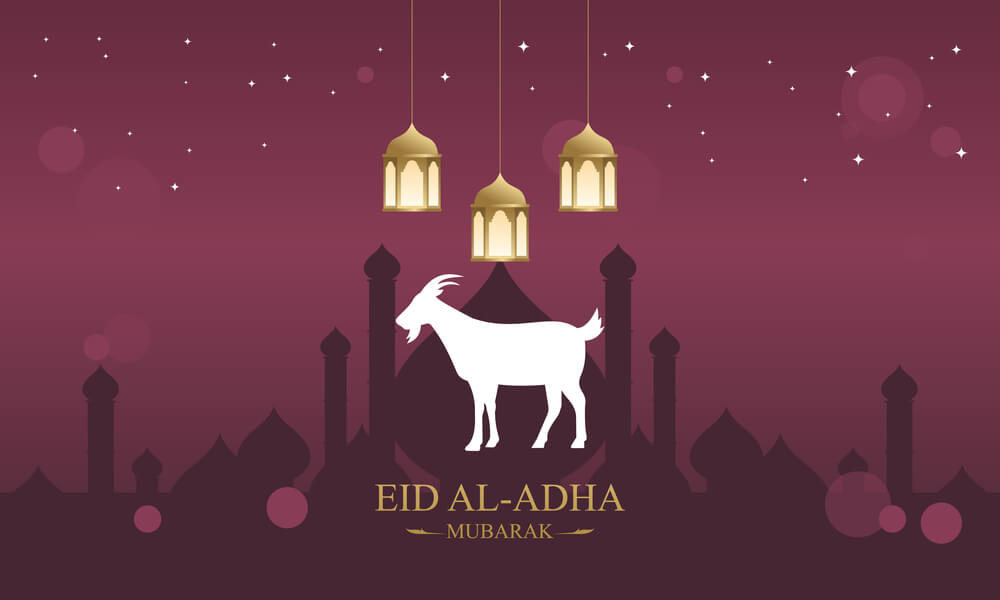











Celebrations of Eid ul Adha 2023
Celebrations for Eid ul Adha typically last three days and are a happy event. The festivities begin with morning prayers, followed by the sacrifice of an animal, such as a goat, sheep, or cow. Muslims who can afford it are encouraged to offer sacrifices as a way of expressing their gratitude to Allah and sharing their blessings with others. After the sacrifice, the meat is divided into three parts. One-third is kept by the family, one-third is distributed among friends and relatives, and one-third is given to the poor and needy. This act of charity and generosity is a vital part of the festival and reflects the Islamic principle of caring for those less fortunate.In addition to the sacrifice, Eid ul Adha is a time for dining, mingling, and spending quality time with loved ones. Special dishes are prepared, and people dress in new clothes to mark the occasion. Children are given gifts, and families often visit each other to exchange greetings and share meals.Eid ul Adha is an important religious holiday celebrated by Muslims all around the world. It is a time to give thanks, cultivate faith, and be kind and kind to others. The festival commemorates the willingness of Prophet Ibrahim to sacrifice his son as a test of his faith, and Muslims are encouraged to follow his example by offering sacrifices and sharing their blessings with others.Eid ul Adha is a time for joyful festivities and a reminder of the fundamental principles of Islam because of its rich history and customs.
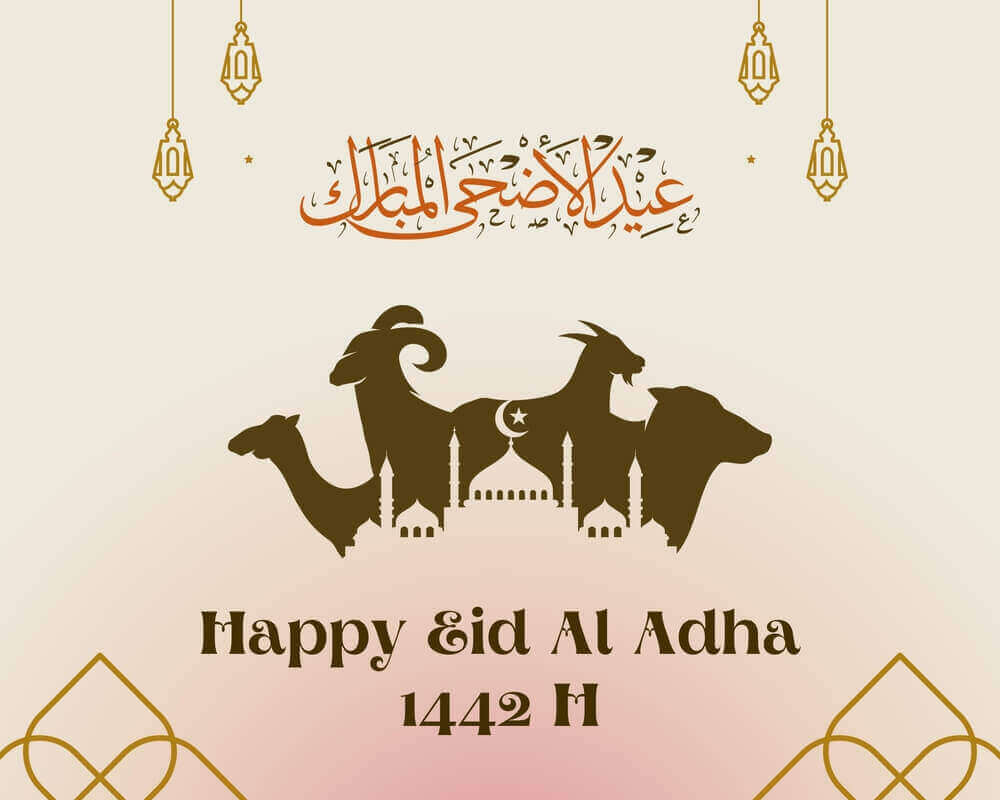
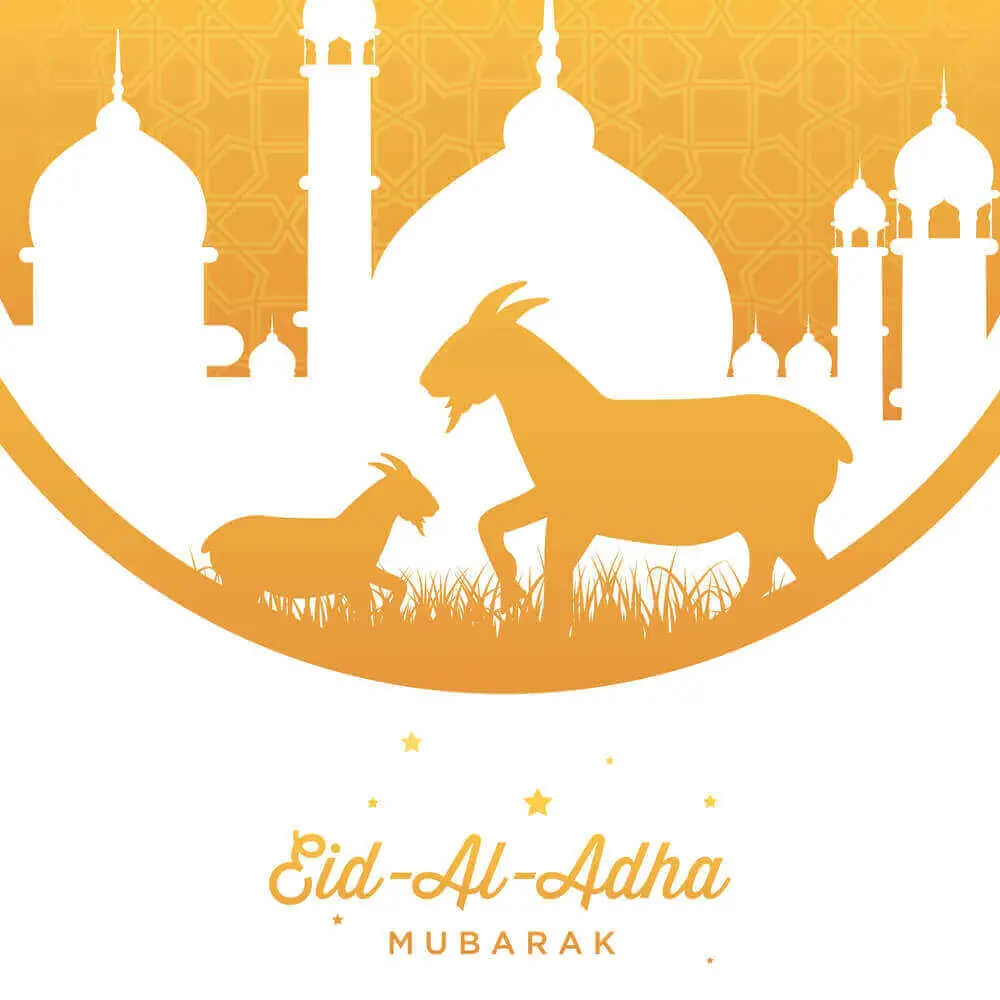
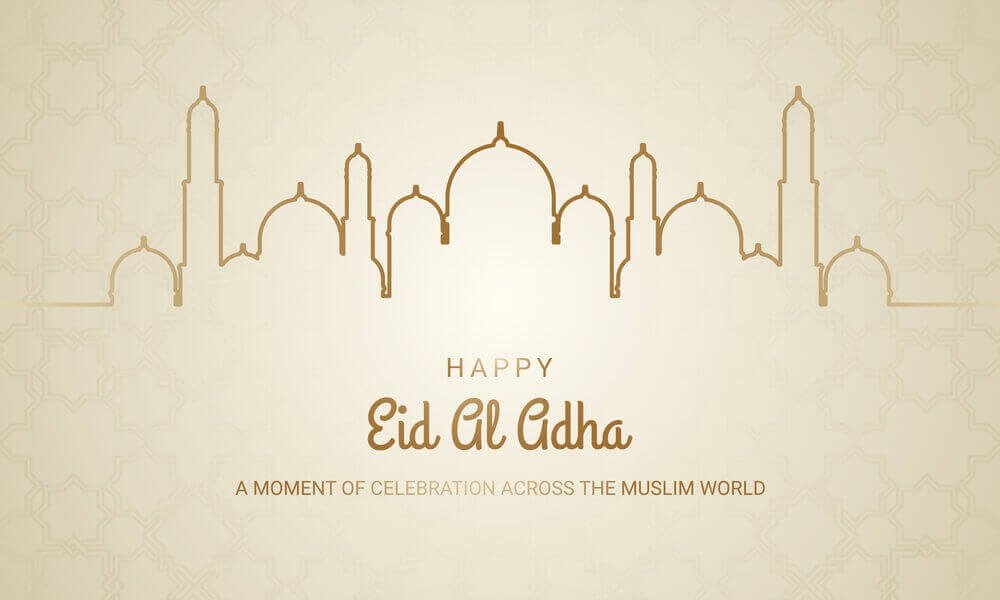
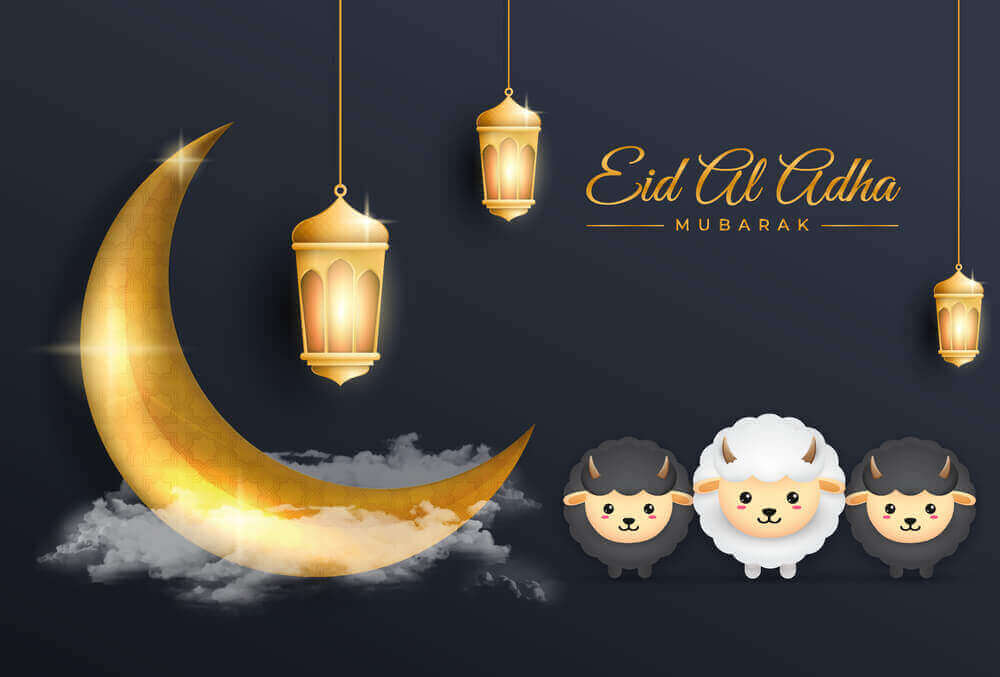
Eid ul Adha 2023: A Celebration of Sacrifice, Faith, and Unity
The Festival of Sacrifice, commonly known as Eid ul Adha, is one of the most significant occasions in the Islamic calendar. It is celebrated on the 10th day of Dhu al-Hijjah, the 12th month of the Islamic calendar. In 2023, Eid ul Adha is expected to fall on the 2nd of August, depending on the sighting of the moon. This festival commemorates the willingness of Prophet Ibrahim (Abraham) to sacrifice his son, Ismail (Ishmael), in obedience to Allah’s command. At the last moment, Allah replaced Ismail with a lamb, sparing him from the sacrifice. As a result, Muslims around the world offer animal sacrifices, symbolizing their willingness to give up something valuable for the sake of Allah. Eid ul Adha is a time of spiritual reflection, renewal, and gratitude for Muslims worldwide. It is also a time for families, friends, and communities to come together and celebrate their faith and culture. In this article, we will explore the history, rituals, and significance of Eid ul Adha, as well as how it is celebrated around the world.
History of Eid ul Adha
The story of Eid ul Adha is rooted in the Abrahamic tradition and has deep religious significance for Muslims. According to Islamic tradition, Allah commanded Prophet Ibrahim to sacrifice his son Ismail to test his faith. Despite the immense love he had for his son, Prophet Ibrahim was willing to obey Allah’s command. However, at the last moment, Allah replaced Ismail with a lamb, sparing him from the sacrifice. Muslims commemorate this event by offering an animal sacrifice, known as Qurbani or Udhiyah, on Eid ul Adha. The meat from the sacrifice is then shared with family, friends, and the poor and needy, symbolizing generosity and compassion.
Rituals of Eid ul Adha
Eid ul Adha is celebrated for three days, starting on the 10th day of Dhu al-Hijjah. The day begins with Eid prayers, where Muslims gather in mosques or open fields to offer prayers and listen to a sermon. The prayers are followed by the sacrifice of an animal, usually a sheep, goat, or cow. The sacrifice’s meat is split into three portions: one for the family, one for friends and neighbours, and one for the underprivileged and needy. Muslims also dress in their best clothes, exchange gifts, and visit family and friends during Eid ul Adha. It is a time for forgiveness and reconciliation, where people seek to repair relationships and renew bonds of kinship.
Significance of Eid ul Adha
For Muslims throughout, Eid ul Adha is a holiday of tremendous spiritual significance. It is a reminder of the importance of sacrifice, faith, and unity. Muslims are encouraged to reflect on the story of Prophet Ibrahim and his willingness to sacrifice his son for the sake of Allah. This serves as a reminder of the importance of submitting to Allah’s will and following His commands.
Bakra Eid holds immense religious and cultural importance within the Muslim community. It is celebrated on the 10th day of Dhul Hijjah, the final month of the Islamic lunar calendar. This festival not only commemorates the profound devotion of Prophet Ibrahim but also serves as a reminder of the values of faith, sacrifice, and obedience to God.
Celebrating Eid ul-Adha 2023: A Time of Faith, Sacrifice, and Unity
Eid ul-Adha, also known as the Festival of Sacrifice, is one of the most significant religious celebrations observed by Muslims worldwide. It honours the Prophet Ibrahim’s (Abraham’s) readiness to offer his son as a sacrifice in deference to God. In 2023, Eid ul-Adha will once again bring joy and spiritual renewal to Muslims all over the globe. This article explores the customs, significance, and diverse traditions associated with Eid ul-Adha, highlighting the spirit of faith, sacrifice, and unity that characterizes this auspicious occasion.
The Importance of Eid ul-Adha
Eid ul-Adha holds immense religious and cultural significance for Muslims. It is celebrated on the 10th day of Dhul Hijjah, the twelfth and final month of the Islamic lunar calendar. This festival not only commemorates the profound devotion of Prophet Ibrahim but also serves as a reminder of the importance of faith, sacrifice, and charity in the lives of Muslims.
The Story of Prophet Ibrahim
The central theme of Eid ul-Adha is the tale of Prophet Ibrahim. According to Islamic tradition, Ibrahim received a divine command in a dream to sacrifice his son Ismail (Ishmael). Demonstrating unwavering faith and obedience, both Ibrahim and Ismail were willing to fulfill God’s command. However, just as Ibrahim was about to carry out the sacrifice, Allah replaced Ismail with a ram, sparing his life and symbolizing the ultimate act of mercy. This act of divine intervention is celebrated during Eid ul-Adha, symbolizing the test of faith and the ultimate reward for obedience.
Rituals and Observances
Eid ul-Adha is a time of spiritual reflection, communal prayer, and acts of benevolence. The festivities typically begin with Muslims attending a special prayer service, known as the Eid prayer, held in mosques or large open spaces. This prayer brings the community together, fostering a sense of unity and shared devotion. The act of sacrifice, known as qurbani or udhiyah, is a central ritual of Eid ul-Adha. It involves the slaughter of an animal, usually a goat, sheep, cow, or camel, following the example set by Prophet Ibrahim. Three equal portions of the sacrifice’s flesh are dispersed among the family, friends, and less fortunate community members, respectively. This practice encourages generosity, compassion, and the sharing of blessings with others. In addition to the sacrifice, Muslims are encouraged to give to charity, offer prayers, and engage in acts of kindness during Eid ul-Adha. It is a time of selflessness, forgiveness, and strengthening ties with family, friends, and neighbors. Many Muslims also take the opportunity to dress in their finest attire, exchange gifts, and indulge in delicious feasts to celebrate the joyous occasion.
Diverse Traditions and Cultural Celebrations
Eid ul-Adha is celebrated with great enthusiasm and unique customs in different parts of the world. While the core rituals remain the same, cultural variations add color and vibrancy to the celebrations. In some regions, communal meals are organized, where people come together to share traditional dishes and exchange stories. Special sweets, such as baklava, sheer khurma, and kheer, are prepared and shared as part of the festivities. In many countries, the streets come alive with vibrant decorations, traditional music, and lively parades during Eid ul-Adha. Children often receive new clothes, toys, and small monetary gifts as a token of love and affection. Festivals, bazaars, and cultural events are organized.
Eid al-Adha 2023: A Celebration of Faith, Generosity, and Unity
Eid al-Adha, also known as the Feast of Sacrifice, is a momentous occasion celebrated by Muslims around the world. It honours Prophet Ibrahim’s (Abraham’s) commitment and surrender to God’s will, including his readiness to offer his son Ismail (Ishmael) as a sacrifice. In 2023, Eid al-Adha will once again bring together communities to embrace the values of faith, generosity, and unity. This article explores the significance, traditions, and customs surrounding Eid al-Adha, highlighting the spiritual essence of this auspicious event.
The Significance of Eid al-Adha
Eid al-Adha holds immense religious and cultural importance within the Muslim community. It falls on the 10th day of Dhul Hijjah, the final month of the Islamic lunar calendar. This festival not only commemorates the story of Prophet Ibrahim but also emphasizes the values of faith, sacrifice, and generosity that Muslims uphold in their daily lives.
The Story of Prophet Ibrahim
The story of Prophet Ibrahim serves as the foundation for Eid al-Adha. According to Islamic tradition, Ibrahim received a divine command in a dream to sacrifice his beloved son, Ismail. Demonstrating unwavering faith, both Ibrahim and Ismail submitted to the commandment. However, just as Ibrahim was about to carry out the sacrifice, Allah intervened and replaced Ismail with a ram, signifying the ultimate act of mercy. This act of divine intervention and the subsequent sparing of Ismail’s life symbolizes the test of faith and the rewards of obedience.
Rituals and Observances
Eid al-Adha is characterized by various rituals and observances that highlight the significance of sacrifice, gratitude, and unity. The festivities commence with Muslims attending the congregational Eid prayer, held in mosques, open fields, or designated prayer areas. This prayer unites the community in worship, fostering a sense of togetherness and spiritual connection. One of the central rituals of Eid al-Adha is the act of qurbani, or animal sacrifice. Muslims who can afford it sacrifice an animal, such as a goat, sheep, cow, or camel, following the example set by Prophet Ibrahim.Three equal portions of the sacrificial animal’s flesh are shared among the family, close friends, and the less fortunate people in society. This act of sharing symbolizes generosity, compassion, and the spirit of giving back to the community. Beyond the qurbani, Muslims engage in acts of charity, extend greetings, and foster familial and communal ties during Eid al-Adha. Many families dress in their finest attire, exchange gifts, and visit relatives and friends to celebrate the joyous occasion. It is a time for forgiveness, reconciliation, and strengthening bonds with loved ones.
Diverse Traditions and Cultural Celebrations
Eid al-Adha is celebrated with enthusiasm and diverse traditions across different regions of the world. While the core rituals remain the same, cultural variations add vibrancy and uniqueness to the celebrations. Communities come together to organize special meals and feasts, where traditional dishes are shared, and stories are exchanged. Delicacies such as biryani, lamb kebabs, and sweet treats like baklava and sheer khurma are prepared, adding flavor to the festivities. Streets and homes are adorned with colorful decorations, and bazaars are filled with bustling activity during Eid al-Adha. Festivals and cultural events are organized, showcasing traditional music, dance performances, and artistic displays. Children receive new clothes, toys, and monetary gifts, heightening the joy and excitement.
Bakra Eid 2023: A Celebration of Sacrifice and Renewed Faith
Bakra Eid, also known as Eid al-Adha or Eid ul-Adha, is a significant Islamic festival that commemorates the willingness of Prophet Ibrahim (Abraham) to sacrifice his son as an act of obedience to God. It is a time of deep spirituality, sacrifice, and renewed faith. In 2023, Bakra Eid will once again bring Muslims from around the world together to honor the traditions and teachings associated with this auspicious occasion. This article delves into the customs, significance, and joyous celebrations of Bakra Eid, highlighting its profound spiritual and communal dimensions.
The Story of Prophet Ibrahim
The story of Prophet Ibrahim lies at the heart of Bakra Eid. According to Islamic tradition, Ibrahim received a divine command in a dream to sacrifice his son, Ismail. Displaying unwavering faith and submission, both Ibrahim and Ismail were ready to fulfill God’s command. However, as Ibrahim prepared to carry out the sacrifice, Allah intervened and replaced Ismail with a ram, symbolizing the ultimate act of mercy. This divine intervention underscores the test of faith and the rewards that come with obedience.
Rituals and Observances
Bakra Eid is marked by several rituals and observances that reflect the spirit of sacrifice and devotion. The celebrations commence with Muslims attending communal prayers, known as Eid prayers, held in mosques, open fields, or designated prayer areas. These prayers bring the community together, fostering a sense of unity, gratitude, and spiritual renewal. One of the central rituals of Bakra Eid is the act of sacrificing an animal, typically a goat, sheep, cow, or camel. This practice, known as qurbani or udhiyah, commemorates Ibrahim’s willingness to sacrifice his son. The sacrifice is performed following specific guidelines and with utmost care and compassion for the animal. To feed the family, friends, and less fortunate members of society, three equal portions of the slaughtered animal’s flesh are shared. This act of sharing symbolizes generosity, kindness, and the spirit of giving back to the community. Additionally, Bakra Eid is a time for Muslims to engage in acts of charity, offer prayers, and seek forgiveness. It is an occasion to reflect on one’s faith, strengthen familial and community bonds, and extend a helping hand to those in need. Many Muslims also take the opportunity to dress in their finest attire, exchange gifts, and indulge in delicious feasts, creating an atmosphere of joy and celebration.
Cultural Celebrations and Traditions
While the core rituals remain consistent, Bakra Eid is celebrated with diverse traditions and cultural variations in different parts of the world. Local customs add vibrancy and richness to the festivities. Communities come together to organize special meals, where traditional dishes are prepared and shared. Festivals, bazaars, and cultural events are organized, showcasing music, dance, and artistic displays that reflect the local heritage.Furthermore, Bakra Eid encourages acts of kindness and generosity. Many Muslims contribute to charitable initiatives, donate food, clothing, or financial assistance to orphanages, shelters, and needy families. This emphasis on compassion and social responsibility further deepens the spiritual significance of the festival.
Conclusion
Bakra Eid, with its emphasis on sacrifice, faith, and community, holds profound meaning for Muslims worldwide. It serves as a reminder of the unwavering devotion of Prophet Ibrahim and the rewards of obedience. Bakra Eid 2023 will bring Muslims together to partake in prayers, qurbani, acts of charity, and joyous celebrations. Through these rituals, Muslims seek to strengthen their faith, foster unity, and express gratitude for the blessings in their lives. Bakra Eid is a time of reflection, generosity, and renewed commitment to living a life aligned with the teachings of Islam.
Eid al-Adha, a celebration of faith, generosity, and unity, holds immense significance in the Muslim calendar. It commemorates the story of Prophet Ibrahim and serves as a reminder of the values Muslims cherish, such as faith, sacrifice, and community engagement. As Eid al-Adha 2023 approaches, Muslims around the world will come together to partake in prayers, qurbani, acts of charity, and joyful celebrations. Through these traditions, they seek to deepen their spirituality, strengthen bonds with loved ones, and extend a hand of compassion to those in need. Eid al-Adha is a time of reflection, gratitude, and unity, inviting individuals to embrace the teachings of Prophet Ibrahim and embody the essence of this sacred festival.
powered by wishifiy.com
#BakraEid2023#EidAlAdha2023#EidulAdha#IslamicFestival#ProphetIbrahim#SacrificeAndFaith#SpiritualRenewal#EidPrayers#QurbaniTradition#CharityDuringEid#BakraEid2023 #EidalAdha #EidulAdha2023 #IslamicFestival #SacrificeAndRenewedFaith #ProphetIbrahim #EidPrayers #Qurbani #Udhiyah #ActsOfCharity #CommunityCelebrations #MuslimsWorldwide #SpiritualRenewal #IslamicTraditions #JoyousCelebrations #Generosity #Unity #Gratitude #Reflection #Obedience #Faith #CulturalVariations #LocalCustoms #CharitableInitiatives #SocialResponsibility #CelebratingBakraEid
#EidCelebrations#MuslimCommunity#EidFeast#EidCustoms#CulturalTraditions#JoyousOccasion#UnityAndGenerosity#MuslimHeritage#EidMubarak#EidSpirituality#shutterstock
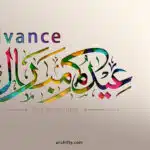

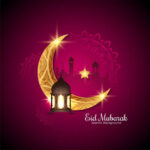

Ive read several just right stuff here Certainly price bookmarking for revisiting I wonder how a lot effort you place to create this kind of great informative website
Hi i think that i saw you visited my web site thus i came to Return the favore Im attempting to find things to enhance my siteI suppose its ok to use a few of your ideas
I do not even know how I ended up here but I thought this post was great I do not know who you are but certainly youre going to a famous blogger if you are not already Cheers
Just wish to say your article is as surprising The clearness in your post is just cool and i could assume youre an expert on this subject Fine with your permission allow me to grab your RSS feed to keep updated with forthcoming post Thanks a million and please keep up the enjoyable work
Usually I do not read article on blogs however I would like to say that this writeup very compelled me to take a look at and do so Your writing taste has been amazed me Thanks quite nice post
Its like you read my mind You appear to know so much about this like you wrote the book in it or something I think that you can do with a few pics to drive the message home a little bit but other than that this is fantastic blog A great read Ill certainly be back
I was recommended this website by my cousin I am not sure whether this post is written by him as nobody else know such detailed about my difficulty You are wonderful Thanks
I like this site very much, Its a real nice office to read and get
information.Blog money